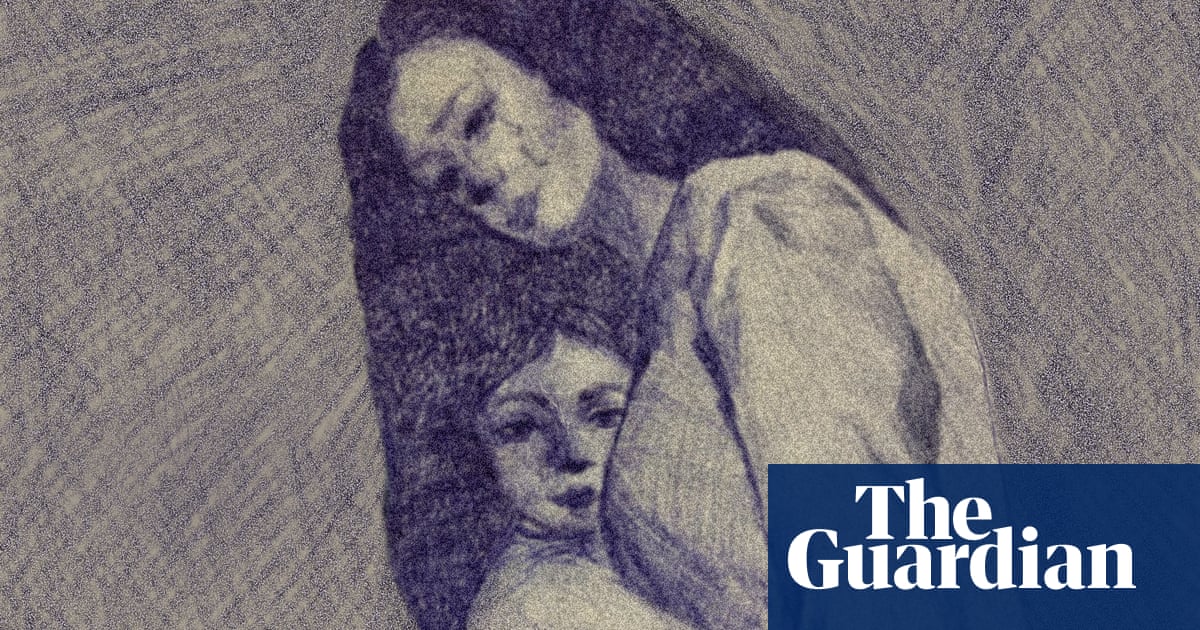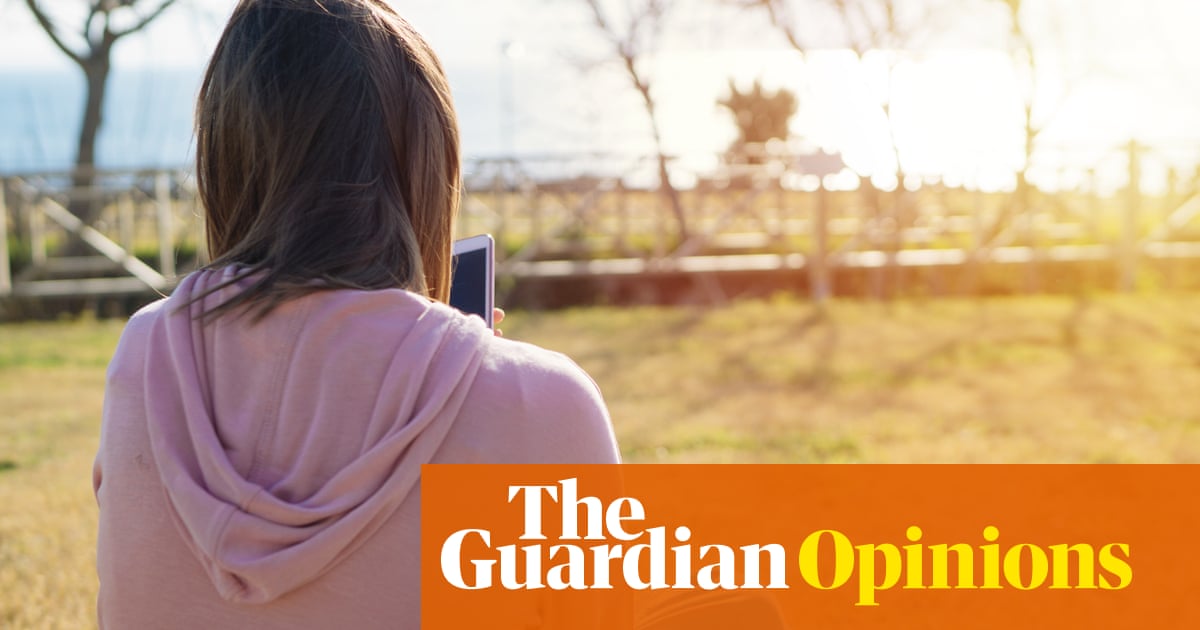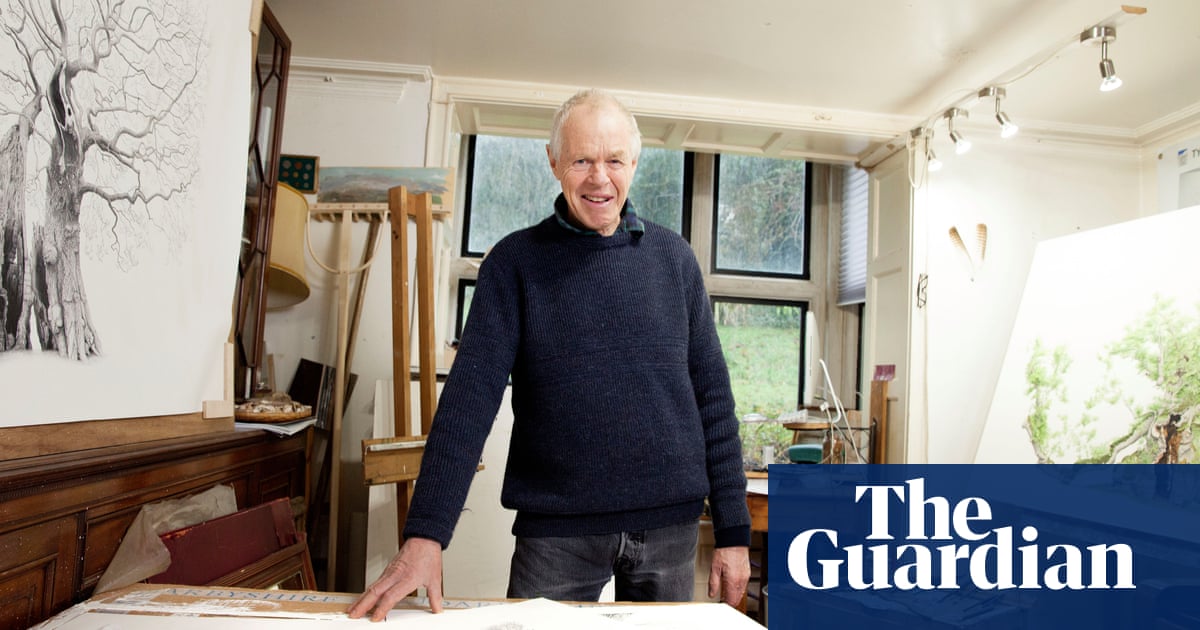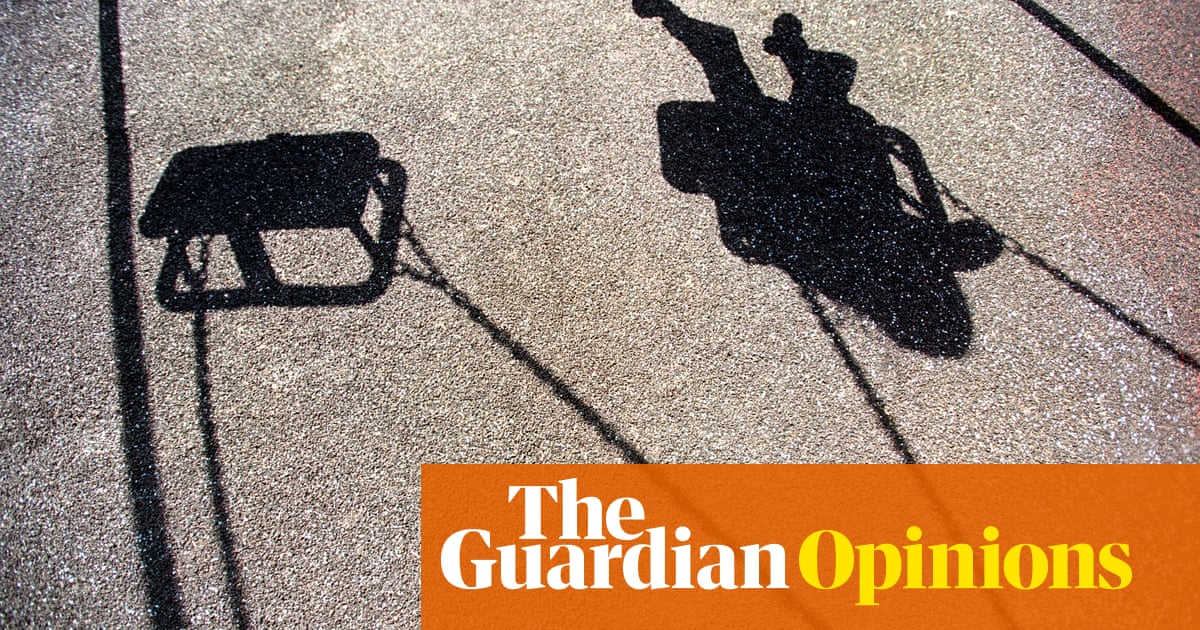
When my daughter learned to walk, she began following me around our apartment – into the bathroom while I showered, studying my naked body; into the bedroom when I dressed, regarding my baggy underwear with curiosity.
It was the fall of the 2016 election, and as she watched my utterly changed body, though her eyes were kind and questioning, I could not help but recall the faces of men who had, at various points in my life, scrutinized my body with approval or reproach.
That year, her nascent voice, full of innocent inquisitiveness, also began to drown out my own thoughts. I was reminded of the many men who had spoken over me all my life.
Motherhood, I found early on, was triggering.
Amother’s body is slowly made over time. It is groomed from birth by the ideologies of womanhood that descend on us the moment we are born, then piled further on us throughout childhood, and calcified by the stories we inherit about what makes a good mother.
When I was very young, I had toys that offered early lessons in mothering: baby dolls with yarn for hair whom I ferried about, tucked into a play crib with frayed washcloths, patted down for sleep. I had already learned I was to be the giver of sleep, a source of nourishment.
Later, as I moved through adolescence, boys taught me, more forcefully, other uses for my hands and mouth. They taught me how to please them; they silenced my voice. I became confused about my own desires – about what I wanted and how to ask for it, about whether I had a voice in any matter at all. Nausea, discomfort and pain, I thought, were part of being wanted, of sex, of becoming a woman. I became conscious that my body did not belong only to me.
It was a tapestry to be admired or reviled, a someday-vessel for reproduction.
A year after my daughter learned to walk, the #MeToo movement brought into my home a steady stream of testimony by women who had been harassed, violated and assaulted by men.
I watched most of the public conversation from a distance, through TV news programs and internet posts, pregnant again and alone in my apartment, my first child climbing on me while I tried to connect what was happening in the public sphere to my own experiences as a girl and a young woman.
I replayed memories of my early sexual life, nights that had left me feeling ashamed and used, seeing them in an entirely different light.
By then, I had also acquired new wounds, this time from motherhood: fresh ideas about what I lacked and new reasons for self-denial, shame and self-effacement, along with real financial and social losses. Most days I found myself patrolling my speech, the way I held my body, everything I felt, every decision I made.
I had mostly given up on my once-promising academic career, taking a job at a home daycare – an arrangement that allowed me to generate a small income while avoiding the high cost of childcare. I spent my days talking with three-year-olds about their hand-drawn artworks and often starved myself during my shifts to lose the persistent baby weight, and to keep to the day’s schedule. Avoiding my own needs and desires had become a method of survival.
It also seemed to be a measure of maternal success. By the time I became a parent, middle-class, bourgeois standards of parenting had created exponential anxieties for mothers. Childcare was already a broken industry. The motherhood content I located online and the advice I read in parenting books told me that mothers should study and perform model parenting at the cost of all else, and meet their child’s needs with monkish detachment. The message was well received that women should expect to sacrifice their professional, personal and physical autonomy for parenthood. And so I had.
When I got home at the end of a long day working at the daycare, I let my daughter have her way with me. Exhausted from many sleepless nights tending to my baby, I lay on the floor of her room and let her pat me to sleep. She tucked me in with a thin muslin baby blanket, then ferried all her stuffed animals over to me one by one before she stroked my back and shushed me. “Nigh, nigh, mommy,” she’d say. “Go sleepy.” She ordered me to protest while she turned off the lights, tugged our blackout curtains closed and left the room.
I did as I was told, eyes closed, half awake. When the game was finished, she ascended me, requesting books on laps, a ride about the apartment, more breast.
I called on old coping mechanisms. In my twenties, I had learned methods for dissociating: I studied corners of the room while men got themselves off inside me; I listened to their heavy breathing, calculating how much longer, moaning here and there to help them along, moving my hips methodically or going limp. I had cleaved myself from my body long ago. This was nothing new.
“Most of our sexual encounters are spent in calculations,” the feminist theorist and cofounder of the Wages for Housework movement Silvia Federici writes of women. “We sigh, sob, gasp, pant, jump up and down in bed, but in the meantime our mind keeps calculating ‘how much’: how much of ourselves can we give before we lose or undersell ourselves, how much will we get in return.”
Motherhood was filled with an agonizing sense of calculation: of waiting, of pushing my body to the brink of what it could take, of counting down the minutes, and of doing things I did not want to do, repeatedly.
I tried to make myself into an object that was accommodating and agreeable, but over time, I found myself wondering whether life, for some women, was just a series of moments in which we grit our teeth and watch the clock.
What I wanted in early motherhood, more than anything, was to feel as though I fully inhabited and had my body. But all the ideas about how I should act as a mother – how I should respond to near-constant requests, demands for attention, volatile emotions, hands down my shirt and smushing my face, not to mention the complete dissolution of self I experienced outside my role as mother – made me feel so small.
I struggled with the physicality of caring for children, which was worsened by the isolation and alienation I felt as friends and colleagues disappeared, and as my husband and I, despite our best efforts, fell into a rather traditional division of labor in the home.
Marguerite Duras wrote that in motherhood “a woman gives her body over to her child” until “they’re on her as they might be on a hill, in a garden; they devour her, hit her, sleep on her.” Though my child’s touch began as something invited, as I lost control of my life, every request, every tug, felt like a violation. “She lets herself be devoured,” Duras writes. “Nothing like this happens with fathers.”
I didn’t want to be devoured. I tried very hard not to be devoured. I would not say I let it happen.
Given the demands of breastfeeding, a lack of access to extended paid leave and affordable childcare, and my family’s other financial demands, I had become the primary caregiver. The more the gendered division of labor in my home revealed itself, the more I found myself defaulting to the idea that I was to blame for the loss of agency I now felt over my life. Clearly, I hadn’t managed my career or my relationship with my spouse or my child correctly. I hadn’t bottle-fed enough. I hadn’t timed parenting right. I had followed the wrong parenting advice. I had asked for this – all of it.
The conditions in which I had been forced to parent in the US fell away. I saw everything through the lens of personal failure. Over time, however, I developed a growing awareness that the lack of autonomy I felt in motherhood reiterated everything I had been urged to believe about myself since I was a girl.
Mothers I knew or located online, I observed, also often spoke of the misery they felt as new parents – the losses of self, jobs, ownership over their bodies – as though it were all a rite of passage, something unavoidable about being both a woman and a parent, something to be accepted, even embraced.
But against the backdrop of a public reckoning with sexual violence, it was hard not to see the demands of modern motherhood as inseparable from the broader violence against women in the US.
As the 2016 election reached a depressing ending, alone in my apartment after a long shift at the day care, I had the desperate urge to finally say no, though I didn’t know how, nor to whom I might say it.
Not long after I lost my virginity in high school, I had a crush on a shy but popular football player who never showed much interest in me. At a party one night I ended up in a room with him, on an unmade bed. I knew he was a virgin, and I felt together we might share something special, magical. That night, however, he just hovered over my face, looking away while he had sex with me dispassionately. I focused on the rough mattress underneath me, pock marks in the walls. He never spoke to me again, not even later at the party. It was a plan, I later realized, that had been concocted by his friends, other boys who knew how much I liked him.
Motherhood felt like that: like a plan devised behind my back. Like something I wanted, then got, only to find I had been lured in by a group of men who didn’t care at all how I ended up and who were nowhere on the scene. I could discuss the problem with no one. I would only be admonished.
And sure, I had chosen motherhood. I had consented, in a sense. I had even desperately wanted it, in the same way I had craved the touch of that boy.
But over time I came to see that the basic tenets of rape culture run through our cultural expectations of American mothers. Just as we normalize sexual violence against women, we normalize the suffering of women in motherhood. The image of the haggard mom woefully failing to do it all has become so commonplace in American culture that her beaten-down body, excess wine consumption and clinical depression rarely register as serious public health concerns, even though her struggles can easily be traced to historically and culturally specific conditions.
In the US, parenting is performed intensively in isolated nuclear family units without access to a national parental leave policy or affordable childcare. New mothers often find themselves caring for children all alone, pushed out of careers, a crying baby on their lap as news of increasing reproductive control drones on the TV in the living room, or flashes across the screens on their phones, portals to a world that seems to have forgotten they exist.
Today, the exorbitant costs of childcare make it unaffordable almost everywhere in the country. Maternal mental health has continued to suffer. As many as one in five women experience perinatal mood and anxiety disorders, and maternal mortality increased by 40% in 2021, with rates higher for Black women. Maternal health nevertheless remains underfunded and culturally trivialized.
Colloquially and clinically, women’s struggles with parenting are generally understood as an individual wellness problem, a psychological defect, or cause for pharmaceutical treatment.
In early motherhood there was, of course, pleasure to be found in the budding love I shared with each of my children. They seemed to me in many ways independent of everything that troubled me most about American parenthood, something that set our relationship apart from the unequal relationships I had with men, who so clearly benefited from the cultural mores and institutions that disempowered me.
At least on the surface, the love I shared with my young children felt uncomplicated by gender.
It was my sudden, lonely housewifery that felt forced, compulsory, staged, inescapable – and recognizable. I was living a life that seemed, as Duras put it, “to have been written down and described already”.
And as with my early sexual encounters, the experience of getting what I wanted was immediately tainted by what I hadn’t known before consenting.












